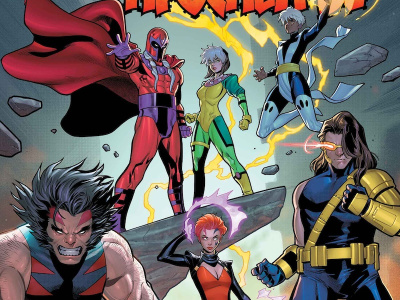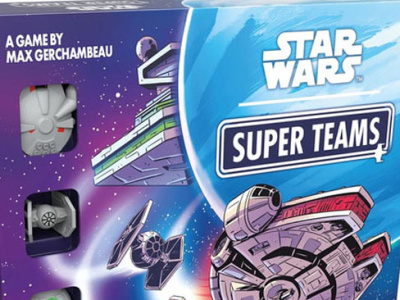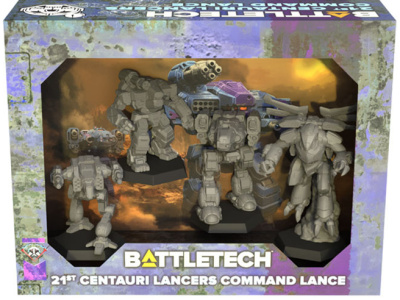Prompted by a flurry of Talk Back activity on ICv2.com discussing Magic Pre-Releases, we recently interviewed two Wizards of the Coast executives, VP of Marketing Casey Reeter and VP of Organized Play Chris Galvin, to find out more about how Wizards organizes its Magic: The Gathering events, and how it controls its sales channels. In Part 3, we talk about Wizards' policies on Internet sales, and how it enforces them. In Part 1, we got an overview of the different kinds of Magic organized play events. And in Part 2, we talked about why pre-release events are held outside of stores, and what impact those events might be having on sales made in brick and mortar stores.
You mentioned earlier the pressure that sole proprietorship brick and mortar retailers are under, and that one of the places that comes from is the Internet. We certainly hear a lot of retailers talking about Internet competition for Magic boxes and that their biggest customers may want to come to their store to find other players, but they end up buying a significant percentage of their product, especially the largest volume buyers, over the Internet at substantial discounts, less than the typical brick and mortar sells them for. Do you have any feel for what percentage of your hobby channel sales are sold by Internet retailers vs. brick and mortar?
CR: We don't have a sense of that.
Do we understand correctly that there is a system in place for tracking individual boxes by identifiers so you can tell what the distribution channel was for that box?
CR: Yes, we have track and trace codes on the displays.
And is one of the purposes of those to manage the channels through which Magic is sold?
CR: It's to police any activity that may be violating our policies. We do secret shoppers so sometimes we'll find product and track the code to see where it came from, and if anybody has violated any of the policies, we have suspended and terminated people in the past.
Retailers or distributors?
CR: Our distributors -- our customers.
And what is your policy regarding Internet retail?
CR: Our policy is that the customers that we sell to, the distributors that we sell to, cannot sell to the Internet. A brick and mortar retailer has to have more than half of their business as the brick and mortar.
So if you're selling direct to a retailer, then that retailer has to be selling more than half of their product through their brick and mortar store and distributors have to follow those same rules in selling to retailers?
CR: Yes.
You've said you've sanctioned people who violate these policies. Why do you feel like the online availability of heavily discounted Magic product is so high, given that you are attempting to police it and have taken actions in the past?
CR: Our actions are effective where we've taken action. We can't control where our product goes beyond who we sell to. We can't fix price, we can't manage and control where the product goes after it's left who we've sold it to. We know that the action we've taken with people who have violated our terms have been effective.
You said specific actions that you've taken have been effective in specific cases, but overall, there still seems to be a lot of heavily discounted Magic product available on the Internet. Are you saying that's all done by retailers whose sales are half through brick and mortar?
CR: We don't know, so we can't answer that.
If retailers feel like they're being unfairly competed with by Internet retailers who are not selling half of their products through brick and mortar, what actions could they take? What could they do to enhance your enforcement efforts on your policies?
CG: When we have taken action against people in the past, we want to make sure we are not becoming embroiled in he said/she said finger-pointing affairs. So for instance, if we take action against somebody it's because we have absolute rock solid documented evidence 'OK you're were violating the terms of your agreement. Here's the rock solid proof, now here's our measured response to that.' If someone just called us up and said, 'Hi, this is Bob from Bob's Comics and I just want to let you know that Jim over at Jim's Comics is getting 75% of his revenue from Internet sales,' that's not the kind of rock solid evidence that's going to lead us to take action.
How do you develop evidence?
CR: It's been indirectly through the tracking code.
How does that work?
CG: We can't really go into the specifics of our policing and enforcement work
Obviously there are differences in visibility between what you see and what a retailer might see. Since there are retailers that feel like there are things you must not be aware of, is there a way for them to bring those things to your attention -- not that it would be the only thing that would lead to an enforcement action, but just that it might bring an issue to Wizards' attention?
CR: If someone had some comments they wanted to make, we always welcome that kind of feedback, I would say, yeah, we would want to hear what anyone had to say.
CG: We have a merchant relations department that has an 800 number and an e-mail address, and any retailer who is concerned about this and would like to talk to Wizards of the Coast should contact our merchant retail department where our friendly, and I might even say, world-famous merchant relations reps are happy to talk with them.







